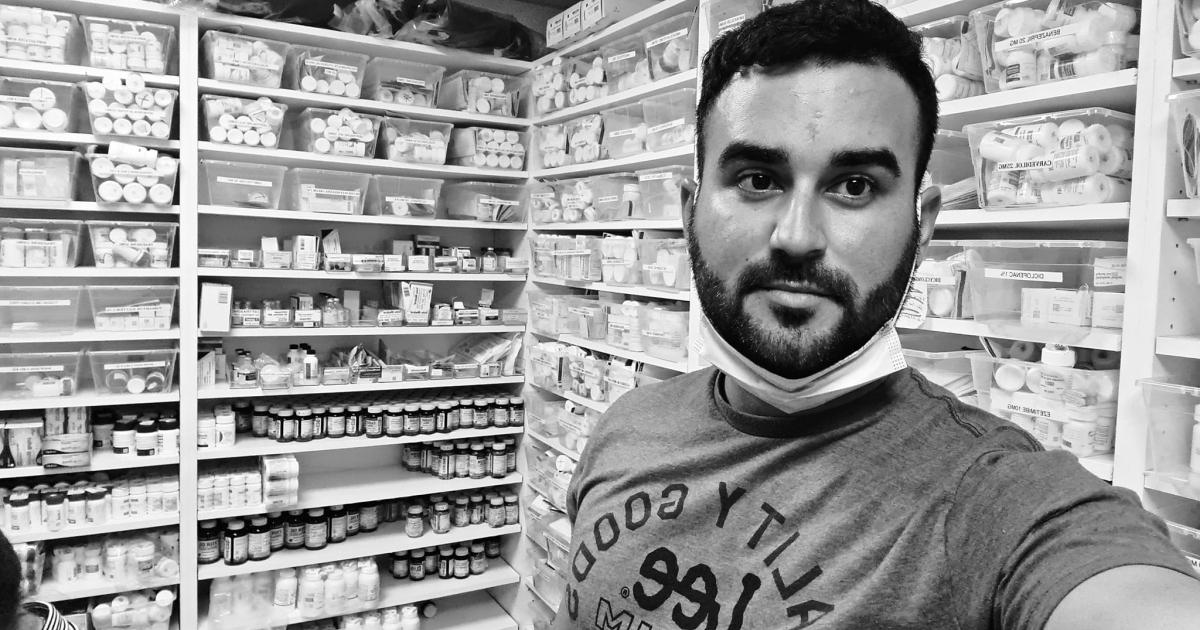
The Cuban doctorManuel Guerra Guerrero, who recently emigrated to the United States, was impressed with thestock of medications in a pharmacy in that country, many of which he had never seen in Cuba, he commented this Friday on his Facebook profile.
During a visit to a clinic in South Florida, for medical examinations that were performed free of charge, the doctor and human rights activist in Cuba admitted that the health center in his host country"It has nothing to do with ahospital in Cuba”.
However, what caught his attention the most was the clinic's pharmacy.“There were all kinds of medications. From the most common analgesic to the least used barbiturate in everyday practice, it was there. “Everyone in their rows and rows well organized, although the latter is difficult due to their vast abundance,” he said in notable reference to the lack of medicines and medical supplies on the island.
“I knew about many of these drugs only thanks to the literature and with great skepticism I contemplated their existence”, he said, adding that “I had already come to think that these were part of some kind of legend or something like that.”
Theshortage of medicines in Cuba It is our daily bread and the doctor did not miss the opportunity to draw attention to the indolence caused by getting used to the fact that the most essential drugs are not available in the pharmacy network of his native country.
"The so-called medical power indoctrinated me in such a way that the classic 'there is no such thing' was almost normal to me." or that uncomfortable phrase that has become commonplace in the pharmacies of my Cuba: 'they say that such and such medicine is going to arrive on such and such a date.' And it seems that the orders were placed for the month of October, since the regular months passed and passed and only their employees came and left our pharmacies, with sad faces and long waits, waits, and waits,” he lamented.
The doctor also criticized the fact that the Cuban authorities rely on the justification “as always, the unfortunate embargo,” to justify the debacle in the health system, while continuing to invest in tourism.
“You may call me crazy, but it hasn't been a year since the dictatorship, at the height of the pandemic and suffering the biggest economic crisis in the last three decades, matteredmore than 800 cars for tourism. Well, they could have taken advantage and brought some medications using the same transportation, but of course, we already know what the regime's priorities are,” he questioned.
“The fact is that while they remain in power, in Cuba only one thing happens: life. What happens in my nation hurts, what my brothers suffer hurts. Say enough Cuban, the change is in your hands”, the doctor declared and closed with the hashtags #NoMásMentiras and #SOSCuba.
Manuel Guerra became known for his criticism of the situation on the island and the health system. He participated in the anti-government protests of theJuly 11 in Holguín, the northeastern province where he lived. A month later, he added his voice to those of others47 doctors from Holguín who demanded that the authorities respect for your profession, as well as resources and medicines to treat patients.
Member of the initiativeMedical Support Commission on the Streets(CAMC) assisted dozens of people for months after their work day during the coronavirus crisis in Cuba. His activism for human rights in Cuba and his participation in the independentFree Cuban Medical Guild, as well as their willingness to integrate the civic march for the change of the20N, ended up taking a toll on his professional career on the island.
Due to his opposition to the regime, he was arbitrarily detained, accused of contempt for authority and expelled from the “Nicodemus Regalado” Hospital in Buenaventura, Holguín, where he had worked for more than two years.
On March 19, the doctor announced that he had arrived in the United States, a week after making public his decision to leave Cuba.
What do you think?
SEE COMMENTS (3)Filed in: